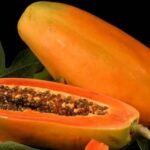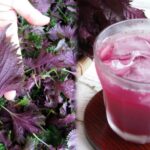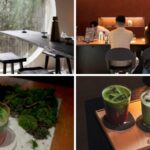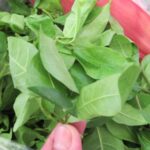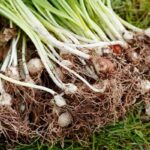The Mid-Autumn Festival is a time for celebration, and alongside the traditional baked and sticky rice cakes, the five-fruit tray is an important part of the festivities. This tray of fruits is prepared as an offering to ancestors and enjoyed by the family under the bright moonlight. During this festival, it is customary to pair these sweet treats with a cup of tea, a combination that not only enhances the flavors but also offers health benefits.
PGS.TS Nguyen Thi Lam, former Vice Director of the National Institute of Nutrition, emphasizes that Moon Cakes tend to be high in sugar and fat. The slight bitterness of tea can perfectly balance the sweetness and richness of these cakes. She also points out that the high sugar content in Moon Cakes acts as a preservative, allowing them to be stored for extended periods. However, this also means they are calorie-dense, and regular consumption can lead to weight gain as the excess energy is stored as fat.
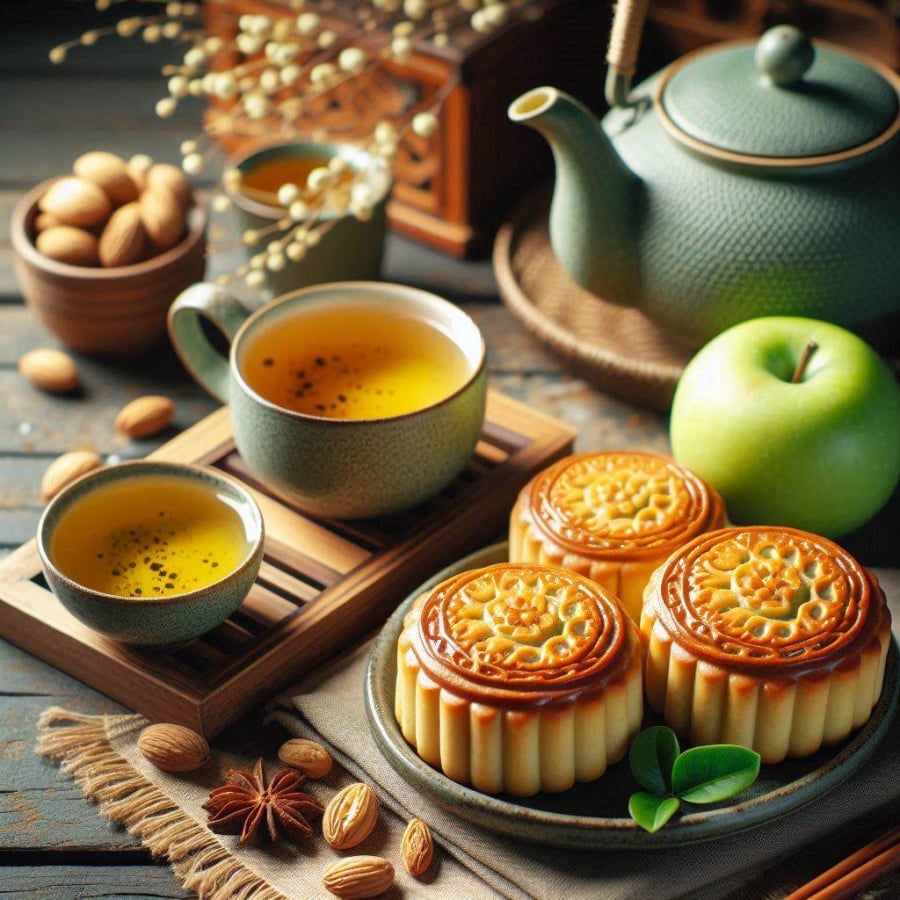
Pairing Tea with Mid-Autumn Festival Treats: A Delicious Combination with Health Benefits
Scientific research has shown that the components in green tea, such as caffeine and catechin, can boost metabolism and aid in fat reduction. Therefore, drinking tea while indulging in Moon Cakes not only balances the flavors but also provides overall health benefits.
However, not all Mid-Autumn Festival treats pair well with tea, and one such example is the persimmon. This autumnal fruit, a typical addition to the five-fruit tray, is beloved by many. According to medical expert Bui Dac Sang from the Vietnam Academy of Science and Technology, persimmons have a sweet and astringent taste and cooling properties. They are known to clear heat, moisturize the lungs, and expel phlegm. Persimmons are also believed to have other benefits, such as strengthening the spleen, treating diarrhea, and reducing thirst.
Mr. Sang cautions that consuming persimmons and tea together may not be beneficial for health, particularly for digestion. Both persimmons and tea contain tannin and pectin, compounds that give them their astringent properties. These compounds can cause the intestinal mucosa to contract and affect intestinal motility. Eating too many persimmons, especially on an empty stomach, can lead to stomach upset and even nausea and vomiting as the tannins and pectins precipitate with stomach acid.
Additionally, there have been emergency cases reported each year during the persimmon harvest season due to excessive persimmon consumption, resulting in intestinal obstruction and requiring hospitalization. Therefore, persimmon consumption should be approached with caution and moderation to avoid potential health risks.
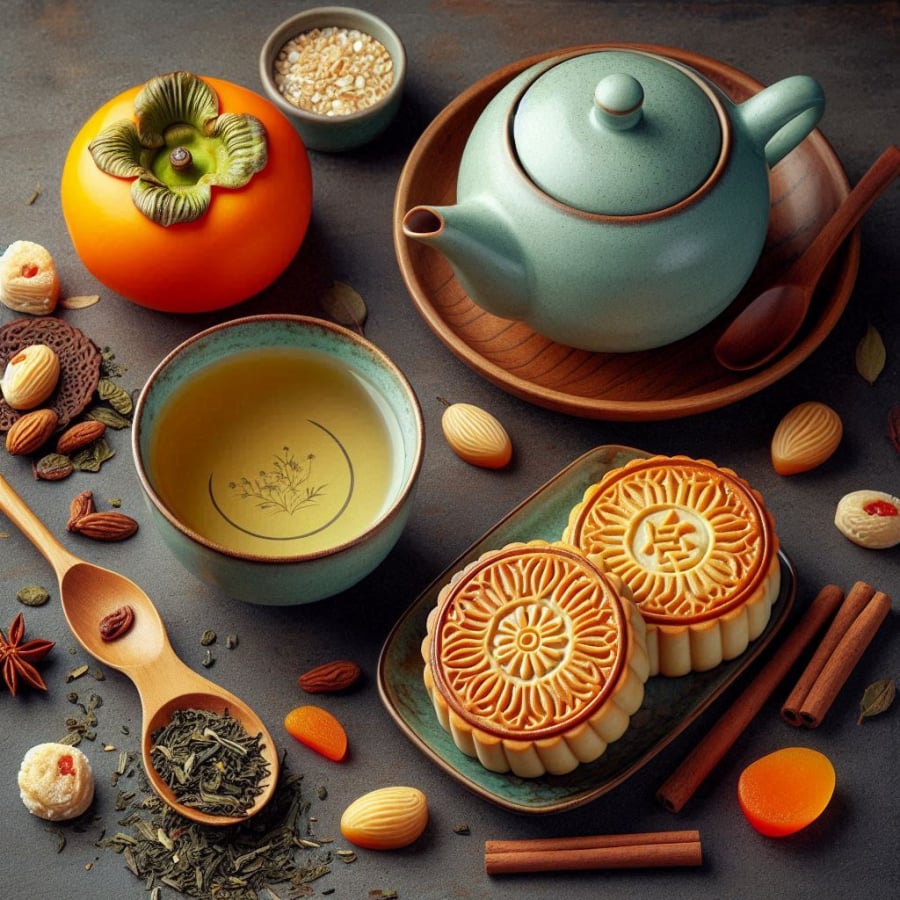
Consuming Persimmons: Approach with Caution for a Healthy Experience
Mr. Sang also emphasizes that when enjoying persimmons, it is important to keep the following in mind, especially when paired with tea:
– Avoid eating on an empty stomach: It is not advisable to eat persimmons when hungry or in large quantities, especially if they are ripe. Overeating persimmons can lead to intestinal obstruction and negatively impact digestion.
– Don’t pair with eggs: Refrain from eating persimmons immediately after consuming eggs, as this combination may increase the risk of food poisoning and acute enteritis, resulting in vomiting.
– Limit consumption with crab soup: The tannin and other components in persimmons should not be consumed with crab soup. They can cause the protein in crab meat to coagulate, forming long-term precipitates in the intestines, leading to fermentation, decomposition, and subsequent nausea, abdominal pain, and diarrhea. In more severe cases, these precipitates can form stones, posing a danger to health.
– Avoid eating with sweet potatoes: Sweet potatoes contain a large amount of starch. When combined with persimmons, the stomach acid can cause precipitation, forming indigestible and hard-to-eliminate lumps, which can lead to stomach stones and serious health issues.
– Be cautious if you have diabetes: Persimmons contain up to 10.8% carbohydrates, mainly simple disaccharides and monosaccharides, which are easily absorbed and can cause a rapid increase in blood sugar levels. Therefore, those with diabetes or poor blood sugar control should be cautious about consuming persimmons.
Additionally, people with diarrhea, physical weakness, women who have recently given birth, and those with a cold should avoid eating persimmons. Individuals with weak stomach function, chronic gastritis, indigestion, or those who have undergone stomach surgery should also refrain from consuming this fruit.
The Ultimate Matcha Experience: Four Must-Visit Spots in Hanoi’s Trendy Tea Scene
Intrigue your senses and indulge in the ultimate matcha experience at these four must-visit hotspots in Hanoi. The aromatic flavors and exquisite ambiance will captivate your heart, as these venues have become the talk of the town among the youth. Prepare to be enchanted as you step into a world of delicious delights and aesthetic surroundings that will leave you craving for more.

























